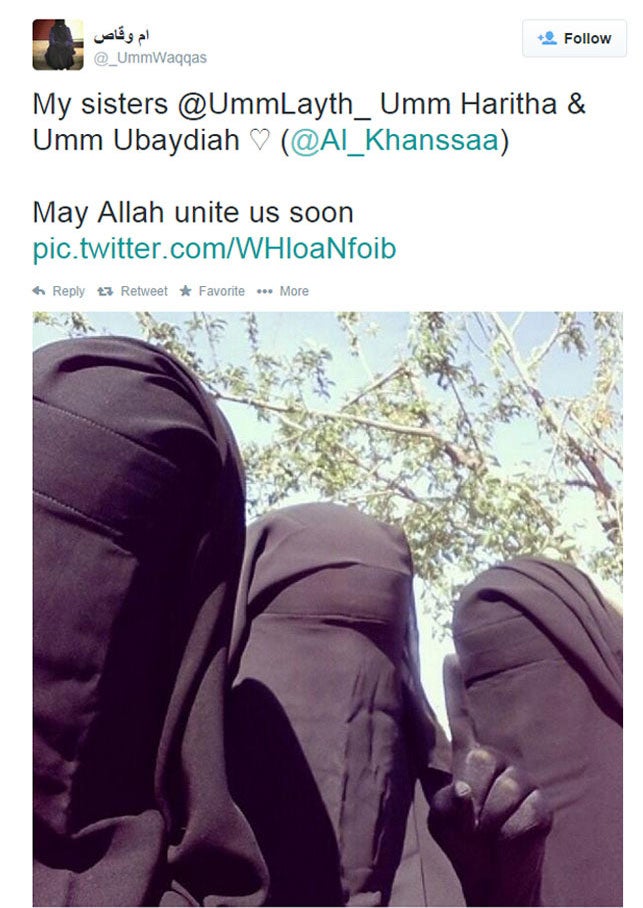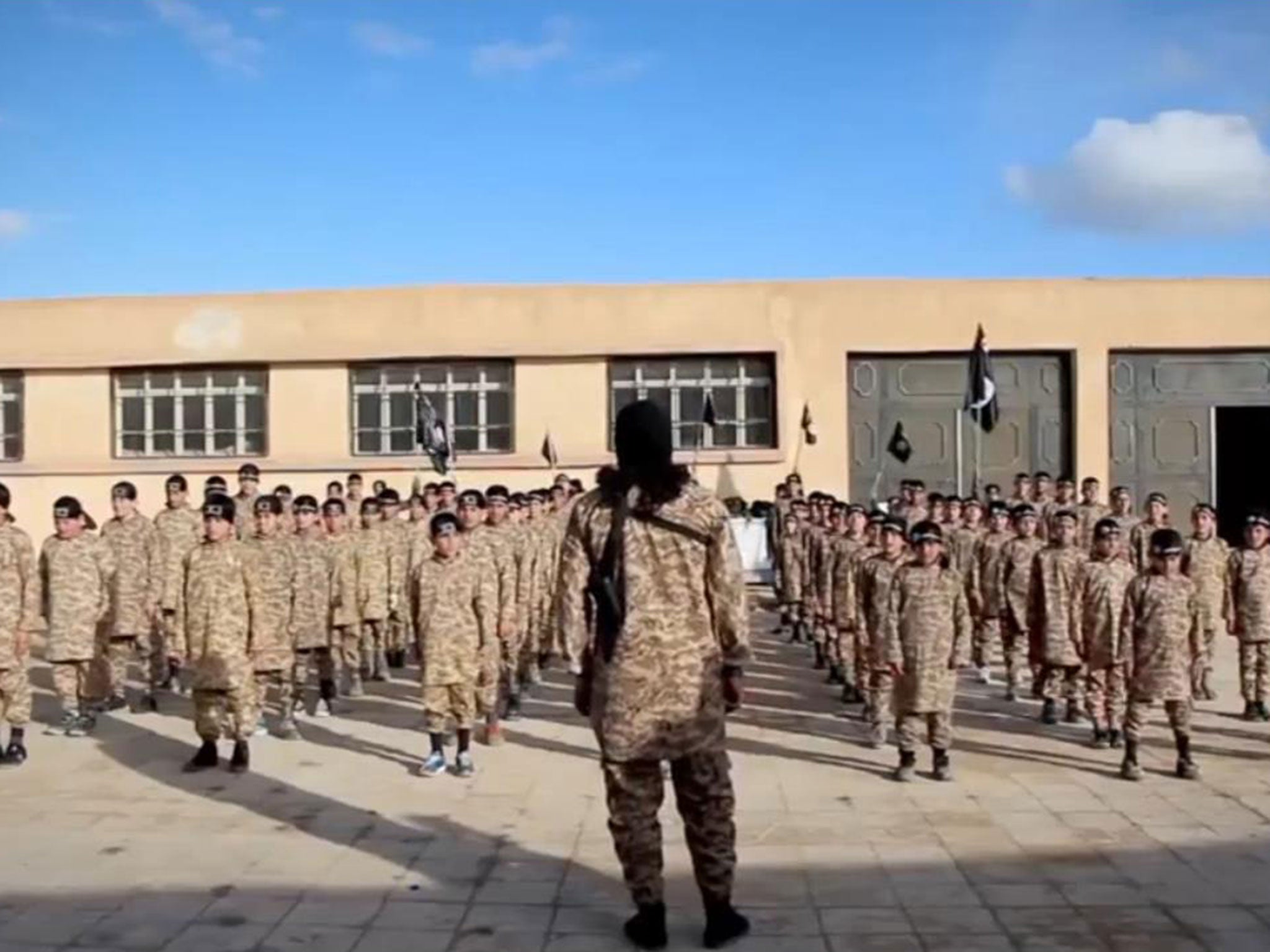10 key findings from Shamima Begum’s failed citizenship appeal
Court ruling says there was ‘credible suspicion’ she was trafficked by Isis and authorities failed to protect her
Shamima Begum may have lost the latest round of her battle against the removal of her British citizenship, but the ruling was damning for the government.
The Special Immigration Appeals Commission (SIAC) found that there was “credible suspicion” that, aged 15, she was trafficked to Syria to be sexually exploited by Isis fighters.
The court also ruled that the UK’s “protective duties” may have been violated when Begum’s school, police and the local council failed to prevent her from travelling to Isis territories after one of her friends did the same.
Mr Justice Jay voiced concern that MI5 had “downplayed the significance of radicalisation and grooming”, even while admitting that what happened to Begum was “not unusual”.
The judge said that “reasonable people will profoundly disagree” with Sajid Javid’s decision to remove Begum’s British citizenship in 2019.
But he concluded that the move was not unlawful, because it was in the then-home secretary’s power “to decide what is in the public interest”.
“Ultimately, the commission has not been able to conclude that the secretary of state’s judgement that the risk to national security outweighs her personal interests is wrong in public law terms,” he added.
Here are some of the court’s key findings.
‘Credible suspicion’ that Begum was trafficked for sexual exploitation
The ruling said: “In the commission’s opinion, there is a credible suspicion that Ms Begum was recruited, transferred and then harboured for the purpose of sexual exploitation. She was a child at the time.”
It pointed to Home Office documents recognising that female Isis recruits, including children, were “married off” to act as brides for Isis fighters and give birth to the next generation in the terrorist group’s caliphate in Syria and Iraq.
The court said that Begum had been radicalised online through Isis propaganda and potential contact with recruiters, and that the idea she could have “conceived and organised [her travel to Syria] herself is not plausible”.
“Getting to the Syrian border would not have been straightforward even for someone ten years older,” the ruling added.
“There must be a credible suspicion that she was in touch with [people in Syria] before she left the United Kingdom and that they provided encouragement.”
SIAC noted that Begum was quickly “married” to an Isis fighter after her arrival in Isis territories and “spent much of the following four years pregnant”.

“Her three babies have all died,” it added. “Whatever the extent of her ideological commitment before she left in February 2015, Ms Begum could not have had any inkling of how much personal suffering she was destined to endure.”
The commission accused Home Office lawyers of treating arguments by her lawyers on potential trafficking “in a somewhat dismissive way” during a hearing in November, when they were “compelling and important”.
“The reality is that even apparently bright and academically gifted 15-year-olds have less personal responsibility than adults but they are not devoid of responsibility altogether,” the ruling said.
“They cannot lawfully consent to sex, still less to marriage, but they are capable of committing criminal offences.”
Alleged ‘state failures’ to protect Begum should be investigated
Begum travelled to Syria with two other girls from Bethnal Green Academy in February 2015, just months after another teenage girl from the school made the same journey.
She and her friends were spoken to by police because of their link to Sharmeena Begum, who was not a relation, but her relatives were not told and officers came to the “conclusion that Begum was not at risk” herself.
Officers later gave a letter warning of Sharmeena’s departure to the three girls and other Bethnal Green Academy pupils, but they did not pass it on to their parents before they fled the UK.
“It is not clear why the police did not send these letters to the parents directly and did not suggest to them that this was a wider problem,” the ruling said.

“It is arguable, in the commission’s judgment, that there were state failures, and possible violations of the corollary protective duty, between December 2014 and February 2015. There is force in the submission that these could be investigated.”
Begum’s lawyers had argued that there were a series of missed opportunities to protect her from radicalisation, prevent her travel to Turkey and stop her from crossing the Syrian border.
“In our view, putting the matter at its very lowest, there is an arguable case of failing to take reasonable preventative measures directed against the police, the school and the local authority,” the SIAC ruling said.
It suggested that an investigation should be carried out to “establish the facts and, if appropriate, lead to the punishment of those responsible”.
Begum’s friend was in contact with a notorious Isis recruiter
Evidence presented to SIAC said that in the autumn of 2014, Begum’s school friend Sharmeena Begum was following the Tumblr blog of Aqsa Mahmood. The former university student left her home in Glasgow to join Isis earlier in 2014.
She ran a prolific blog and social media accounts under the name Umm Layth, where she frequently called for other young British women to travel to Isis territories.
Mahmood was made subject to international sanctions in 2015 for “recruiting others, particularly women, to join Isis and using social media to offer advice on how to travel to Syria”.
Sharmeena had contacted Mahmood on Twitter, and it is believed that she either passed on her teachings to Begum and her other friends, or put them in touch directly.
Sharmeena travelled to Syria, on the same route via a flight from Gatwick Airport to Istanbul, in December 2014 and “may have encouraged Begum and her friends” to follow her, the ruling said.

Begum and her friends were helped into Syria by an alleged spy
Begum and her two friends travelled from Istanbul to the Syrian border by bus, and were filmed being helped into a vehicle by Mohammed Al-Rashed, who has been described as working for both Isis and the Canadian Security Intelligence Service, the ruling said.
The court was told that he acted as a “facilitator” or smuggler and had not been involved in Begum’s decision to travel.
But her lawyers argued that his involvement created another “window of opportunity” to stop Begum passing into Syria, because Canadian authorities could have alerted Britain to her whereabouts.
The BBC has reported that al-Rashed was arrested in Turkey within days of smuggling Begum to Isis and told authorities he had shared a photo of the passport the British schoolgirl was using. But by the time Canada received her passport details, Begum was already in Syria.
Pressure on officials to make quick citizenship decision amid 'media storm’
Begum’s whereabouts, while she was heavily pregnant in a Syrian detention camp, were sensationally revealed in an interview in The Times published shortly on 14 February 2019.
The newspaper published a video and written interviews under the headline “Shamima Begum: Bring me home”, and other news outlets did the same in the following days.
“The publication of The Times article created a media storm,” the SIAC judgment said.
“That has some bearing on Ms Begum’s submission that this was a hasty decision made by a secretary of state whose mind was already made up.”
Then-home secretary Sajid Javid quickly started briefing the media, the ruling added, telling The Times on 15 February he would “will not hesitate to prevent” the return of anyone who joined Isis to the UK, and could use measures “including depriving them of their British citizenship”.

The Sunday Times later published a first-person article by Mr Javid repeating that deprivation powers could be used. He asked for an updated MI5 security assessment on Begum on 15 February, and received it at 5pm 18 February.
At 7am on 19 February, his private office sent an email saying Mr Javid “agreed with the recommendation to deprive Ms Begum of her British citizenship”, and her family was informed by letter the same day.
“The plain and obvious reality of the matter was that [the Home Office department] was under pressure from the secretary of state to make a decision in Ms Begum’s case as soon as possible,” the ruling said.
“One possible inference is that the secretary of state put pressure on his officials to get on with it, and that had there been no media storm more time would have been taken.”
The court questioned why the decision was made so quickly when there was no prospect of Begum returning to the UK in the short term, and similar decisions for female Isis members had taken six months.
But SIAC said that even if the decision was “overly hasty or rushed”, it does not mean it was unlawful.
Mr Javid earlier approved saying child Isis recruits were victims
On 14 February 2019, the home secretary approved a policy on the treatment of minors in the context of citizenship deprivation decisions.
“We accept that individuals who have been radicalised as minors and travelled to Syria or Iraq, or who, whilst a minor, have been taken to Syria or Iraq by their family, are first and foremost victims,” it said.
“It is possible that some of these individuals may be self-motivated but that may be difficult to establish and so our presumption is that in most if not all cases, the individual will have been manipulated or radicalised at some stage – either at home in the UK, or during their time in Iraq/Syria.”
But the policy said that when such children turn 18 there may be a “national security case against them to justify deprivation”.
“Whilst such individuals may once again be considered as a victim, perhaps having been radicalised or compelled to travel to Syria/Iraq as a minor, this does not alter the assessment that will have been carried out as the threat they now pose to the UK,” it added.

Justification for not allowing Begum to challenge the decision before it was made rejected
Home Office officials told SIAC that there were “national security reasons” justifying the decision not to give Begum an opportunity to challenge the removal of her citizenship or provide evidence before it was done.
The commission said it rejected the argument, and that the real reasons why Ms Begum was given no prior opportunity were that the secretary of state was following his standard policy not to do so, It said it was clear that “from the moment the news story broke, this decision would have to be made quickly”.
“Political rather than national security factors drove the outcome.”
But SIAC said that even if Begum had the opportunity to make her case, the decision would have most likely been the same because of the government’s position on national security.
It ruled that Mr Javid was already aware that Begum was 15 when she left, might have been a radicalisation victim and “could not travel to Bangladesh without putting herself at personal risk”.

The government considered removing Begum’s citizenship earlier
The ruling did not give details, but said: “The issue of deprivation in Ms Begum’s case was considered at various times before February 2019 but it was put on hold pending the resolution of certain policy matters.”
SIAC ruled that British citizenship was “not an absolute entitlement for everyone” and can be removed by the home secretary as long as people are not made stateless.
“Many citizens of the United Kingdom are immune from deprivation action for that reason, but not Ms Begum.”
The law allows the home secretary to revoke British citizenship if they are “satisfied that deprivation is conducive to the public good”, and the power is believed to have been used on national security grounds for hundreds of Isis recruits.
MI5 still believes Begum is a threat
The SIAC ruling said that MI5 initially advised Mr Javid that “any individual assessed to have travelled to Syria and to have aligned with Isis poses a threat to national security”.

In media interviews, she has denied alleged roles including sewing suicide vests and taking part in Isis’ morality police, but an updated national security statement given to the court in May said: “Even if Ms Begum’s activities were limited to her being a housewife, she would still pose a risk to national security.”
It added: “Considering all the information that is now available, we have not altered our assessment that Begum posed a risk to UK national security at the time she was deprived of her British nationality.”
MI5 also said that her radicalisation “would have continued” during her four years living under Isis, and that her “activities and experiences during these four years are of critical importance when assessing her national security risk”.
The government does not consider it necessary to consider trafficking before removing people’s citizenship
Home Office lawyers said it was not a “necessary part of the deprivation decision-making process to determine whether someone may have been trafficked, whether that label should be attached, and whether further investigations should be undertaken”.
Join our commenting forum
Join thought-provoking conversations, follow other Independent readers and see their replies
Comments


Bookmark popover
Removed from bookmarks